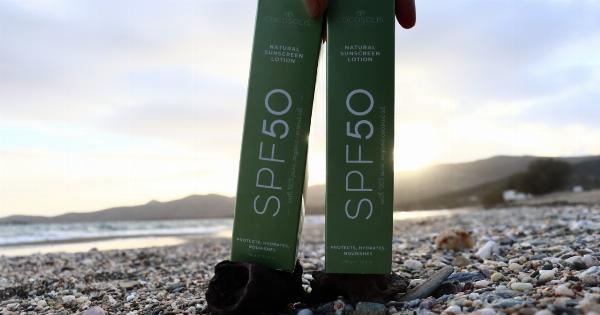Using sunscreen is one of the most important things you can do to protect your skin from the harmful effects of the sun. Not only can it help prevent sunburn, but it can also lower your risk of skin cancer and premature aging.
However, using sunscreen effectively can be tricky. In this article, we’ll provide you with 30 tips for using sunscreen effectively, so you can get the most out of this essential skin care product.
1. Choose the right type of sunscreen
When shopping for sunscreen, there are two main types to choose from: chemical and physical. Chemical sunscreens contain ingredients that absorb UV rays, while physical sunscreens use minerals that reflect UV rays.
Consider your skin type and needs when choosing the right type of sunscreen for you.
2. Check the SPF level
The SPF (sun protection factor) measures a sunscreen’s ability to protect your skin from UVB radiation. Experts recommend using sunscreen with at least SPF 30 for everyday use.
3. Apply generously
Don’t skimp on the sunscreen! Experts recommend using about 1 ounce (or a shot glass full) of sunscreen to cover your entire body.
4. Reapply often
Sunscreen doesn’t last all day. To ensure maximum protection, reapply every two hours, or more often if you’re sweating or swimming.
5. Apply indoors
Apply sunscreen indoors, at least 15 minutes before going outside. This will give your skin time to absorb the sunscreen and provide maximum protection.
6. Cover all areas
Don’t forget to cover all areas of your body – including your ears, neck, hands, and feet. Use a lip balm with SPF to protect your lips.
7. Wear protective clothing
Wearing protective clothing, such as long-sleeved shirts and wide-brimmed hats, can also help protect your skin from harmful UV rays.
8. Avoid peak sun hours
The sun is strongest between 10 am and 4 pm, so try to avoid outdoor activities during these hours if possible.
9. Don’t rely on sunscreen alone
Sunscreen is important, but it shouldn’t be your only line of defense against the sun. Use it in combination with other sun protection measures, such as seeking shade and wearing protective clothing.
10. Don’t forget about your eyes
Your eyes are also at risk from UV rays. Wear sunglasses with UV protection to help prevent eye damage.
11. Check the expiration date
Expired sunscreen can lose its effectiveness, so make sure to check the expiration date before using it.
12. Store properly
Store sunscreen in a cool, dry place and avoid leaving it in direct sunlight or high temperatures.
13. Consider a water-resistant formula
If you plan to be swimming or sweating, consider using a water-resistant sunscreen formula for extra protection.
14. Use a high SPF for prolonged sun exposure
If you plan to be spending prolonged periods of time in the sun, consider using a higher SPF for added protection.
15. Apply to dry skin
Make sure your skin is dry before applying sunscreen. Applying it to wet skin can dilute the effectiveness of the product.
16. Don’t forget about your scalp
Your scalp is often exposed to the sun, especially if you have thinning hair. Consider using a sunscreen spray or powder designed for the scalp.
17. Apply to children
Children’s skin is more sensitive to the sun, so make sure to apply sunscreen to your children before they go outside, and reapply often.
18. Be careful around water and sand
Water and sand can reflect UV rays and increase your risk of sunburn, so take extra precautions when you’re near these surfaces.
19. Apply every day, even if it’s cloudy
UV rays can still penetrate through clouds, so make sure to apply sunscreen every day – even on cloudy days.
20. Be mindful of medication interactions
Some medications can make your skin more sensitive to the sun, so be mindful if you’re taking any medications that can interact with sunscreen.
21. Check the ingredients
Be aware of any ingredients in sunscreen that you may be allergic to, and read the label carefully before using a new product.
22. Use enough for your face
When applying sunscreen to your face, use about a nickel-sized amount for maximum protection.
23. Don’t rub it in
Instead of rubbing sunscreen into your skin, pat it onto your skin for even coverage.
24. Know the difference between UVA and UVB
UVA and UVB rays have different effects on your skin, so make sure your sunscreen provides protection against both types of radiation.
25. Don’t use expired sunscreen
Expired sunscreen can lose its effectiveness, so make sure to throw out any old products and replace them with a new one.
26. Don’t use too much oil
Avoid using oily or greasy lotions before applying sunscreen, as this can decrease its effectiveness.
27. Use sunscreen year-round
Sunscreen is important year-round, not just during the summer months. Make sure to use it every day for maximum protection.
28. Avoid tanning beds
Tanning beds use UV radiation, which can increase your risk of skin cancer. Avoid using them altogether.
29. Watch for signs of skin damage
Be aware of any signs of skin damage, such as sunburn, redness, or changes in moles. If you notice any of these signs, seek medical attention right away.
30. Set an example for others
Teach your children and others about the importance of sun protection, and set an example by using sunscreen yourself.





























